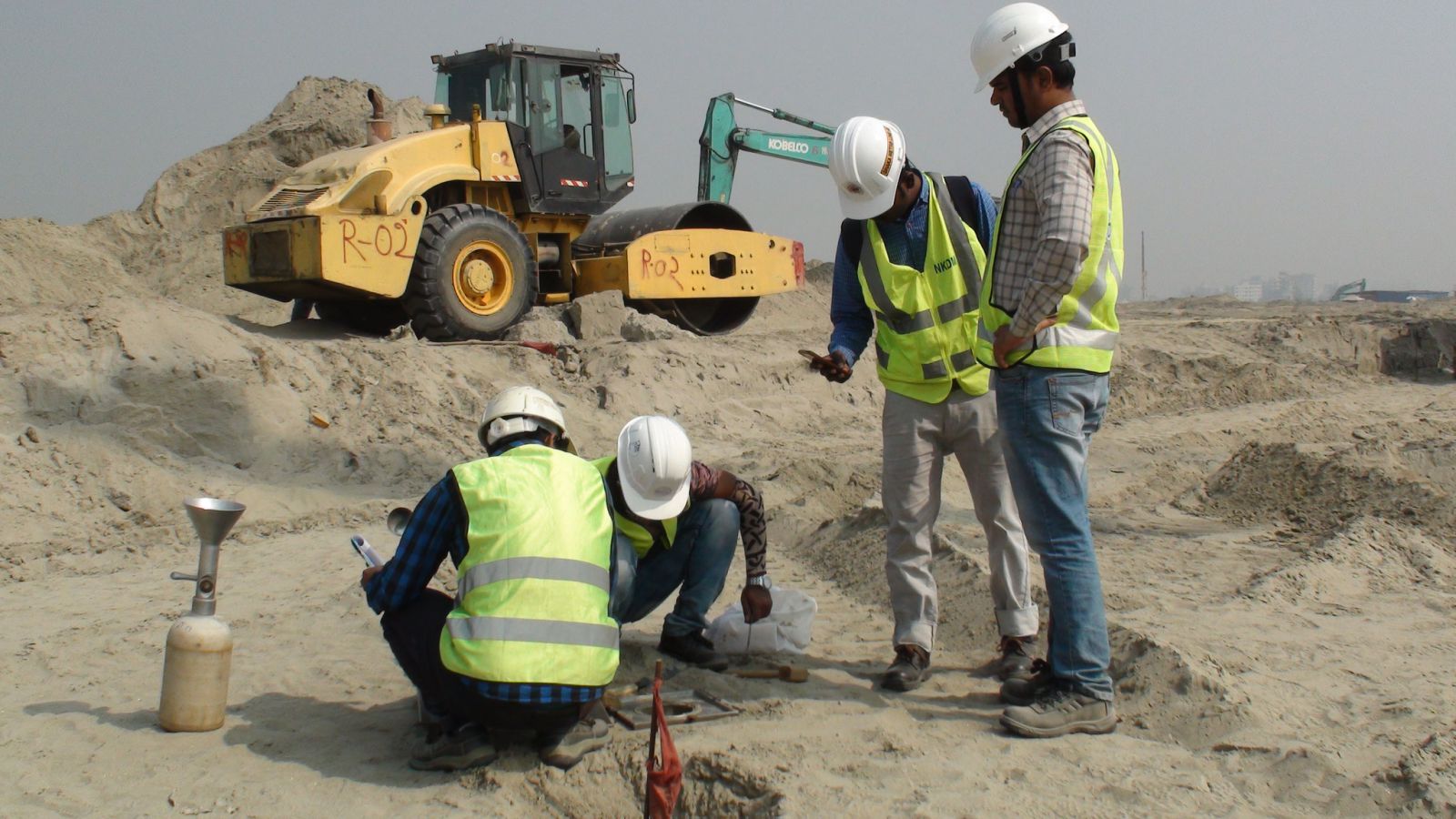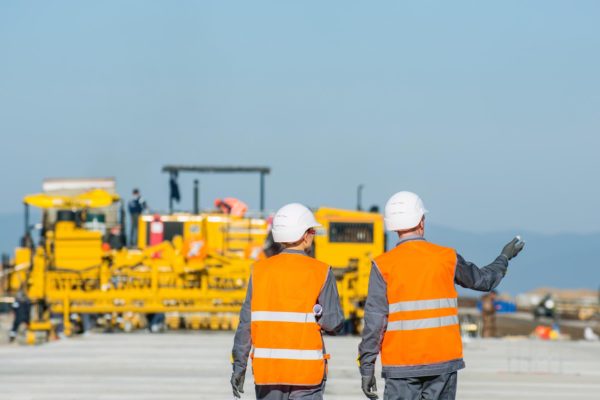Why Employing a Geo Tech Engineer is Essential for Complicated Construction Jobs
Why Employing a Geo Tech Engineer is Essential for Complicated Construction Jobs
Blog Article
Understanding the Necessary Function of the Geotechnical Market in Modern Building Projects and Infrastructure Advancement
The geotechnical industry is a foundation of modern construction and infrastructure growth, offering vital insights right into dirt actions that straight affect project results. Via advanced soil analyses and innovative engineering options, geotechnical specialists not only guarantee architectural integrity however also address sustainability problems amidst developing ecological requirements.
Value of Dirt Assessment
Soil evaluation plays a vital role in the geotechnical sector, working as the structure for notified decision-making in building tasks. Precise soil assessment is essential for establishing the suitability of a website for different types of structures, consisting of property homes, business buildings, and bridges. By analyzing soil structure, moisture, density, and stamina web content, engineers can anticipate prospective obstacles and mitigate threats related to ground instability, erosion, and negotiation.
The evaluation procedure commonly involves a collection of examinations and monitorings that give essential info regarding the subsurface conditions. This data educates the layout and building processes, ensuring that structures are developed on strong ground with adequate support. Additionally, recognizing the soil profile enables engineers to choose proper building techniques and products, optimizing resource application and reducing expenses.
Along with making sure architectural honesty, soil assessment adds to ecological sustainability. By identifying potential contamination or unfavorable impacts on surrounding communities, designers can execute strategies to secure these all-natural sources. Overall, complete soil analysis is indispensable in the geotechnical area, underpinning the safety, effectiveness, and ecological obligation of building tasks.
Trick Geotechnical Methods
A range of key geotechnical strategies are used to boost the stability and evaluate and performance of building and construction websites. One fundamental technique is soil tasting and testing, which permits designers to establish the physical and chemical residential or commercial properties of the ground. This details is essential for making educated decisions regarding structure layout and construction approaches.
Another crucial technique is website characterization, which includes the in-depth assessment of soil and rock problems via methods such as borehole exploration and in-situ testing. Techniques like Standard Penetration Tests (SPT) and Cone Penetration Examinations (CPT) give valuable information on dirt strength and stratigraphy.
Ground renovation techniques, such as dirt stablizing and grouting, are also vital in improving the load-bearing capacity of weak dirts. These methods can reduce settlement and improve general site problems.
In addition, incline stability analysis is crucial for identifying possible landslide risks and guaranteeing the safety of excavations. This evaluation often employs mathematical modeling and limitation balance methods to anticipate soil habits under various conditions.
Including these geotechnical strategies right into building preparation not just optimizes task results however also ensures the long-term sustainability of facilities advancement.
Influence On Construction Safety

Additionally, reliable geotechnical design involves applying reduction techniques for identified risks. This may include dirt stablizing strategies, keeping structures, or water drainage systems to alleviate hydrostatic stress. By resolving these factors, building and construction teams can minimize the possibility of crashes and improve employee safety and security.
Furthermore, constant tracking of website conditions is crucial throughout building. Geotechnical instruments can linked here supply real-time information regarding ground movement and security, permitting for timely interventions when required.
Essentially, the geotechnical sector plays a pivotal duty in securing construction projects. By focusing on ground honesty and using rigorous evaluation approaches, the geotechnical market not just safeguards the labor force but also adds to the durability and dependability of built framework.
Sustainability in Geotechnical Practices

In addition, geotechnical designers are now employing innovative technologies, such as geosynthetics, which enhance dirt security while decreasing the quantity of product needed. This not only saves resources yet likewise results in less waste generation (geo tech engineer). The integration of sustainable style principles into geotechnical engineering motivates making use of eco-friendly energy resources in building processes, additionally lowering carbon emissions
By performing these analyses, geotechnical professionals can create approaches that alleviate adverse impacts, guaranteeing compliance with environmental policies. Generally, the focus on sustainability within geotechnical methods not only adds to the durability and durability of infrastructure but also promotes an accountable technique to land and resource management.
Future Trends in Geotechnical Engineering
Advancement is driving the future of geotechnical design, as arising approaches and technologies reshape the industry. The assimilation of sophisticated data analytics and artificial intelligence is set to revolutionize website investigation and danger analysis, enabling engineers to make even more educated decisions based on real-time data. The visit homepage use of geosynthetic materials is getting grip, providing sustainable solutions that improve soil security and lower environmental influence - geo tech engineer.
One more substantial pattern is the fostering of automated and robot systems for tracking and building procedures. These technologies not just enhance accuracy however also enhance safety and security by reducing human participation in hazardous atmospheres. Furthermore, the execution of Building Information Modeling (BIM) in geotechnical layout promotes enhanced partnership among stakeholders, enhancing job distribution and minimizing costs.
As climate adjustment postures brand-new obstacles, the sector is increasingly her response concentrating on durability and versatility in design methods, guaranteeing framework can endure severe weather condition occasions. The recurring fad toward sustainability will certainly drive innovation in eco-friendly products and methods, lining up geotechnical design with broader environmental objectives. Collectively, these patterns will certainly form an extra effective, sustainable, and resilient geotechnical landscape for future jobs.
Verdict

The geotechnical market is a foundation of contemporary construction and facilities development, providing crucial insights into dirt behavior that directly affect task end results. consulting engineer.Soil analysis plays a crucial duty in the geotechnical industry, serving as the foundation for notified decision-making in construction tasks. Generally, thorough dirt analysis is vital in the geotechnical area, underpinning the safety, performance, and ecological responsibility of construction tasks
Construction safety is considerably affected by geotechnical techniques, as the stability and honesty of the ground directly impact the general safety of a building site.In verdict, the geotechnical market is important in modern building and construction and framework development, supplying vital evaluations that make sure structural integrity and safety and security.
Report this page